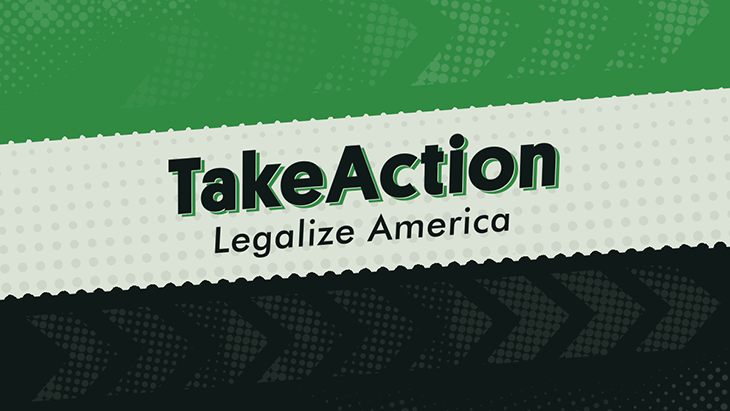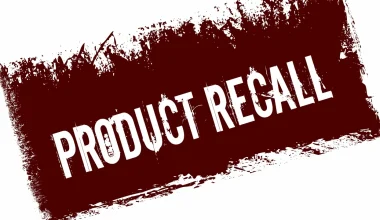This week’s update highlights legislative developments in Arizona, California, Louisiana, North Carolina and Pennsylvania.
Arizona
House Bill 2050 amends state law so that honorably discharged veterans who have lived in Arizona for one year will no longer need to pay the $150 fee to the state to obtain a medical marijuana certification card. Instead, they would receive a medical marijuana card for free after receiving a doctor’s recommendation.
Update: Differing versions of HB 2050 have passed the House and the Senate. The bill now heads to the Conference Committee so that lammakers can agree upon final language.
Send a message to your lawmaker today.
California
Over 750 Cal NORML supporters have written letters to their Assemblymembers in support of AB 2188, which bans employers from denying workers’ jobs or firing them based on a positive drug test for inactive metabolites of THC. These metabolites can be detected for days or weeks after use, and have no correlation with on-the-job impairment.
Update: The bill passed the Assembly and was most recently passed by the Senate Judiciary Committee. AB 2188 is set for its next hearing on June 29 in the Senate Labor committee, where more amendments are expected. If passed, California would be the seventh state to offer employment protections for recreational users. The others are Nevada, New York, New Jersey, Connecticut, Montana, and Rhode Island
Send a message to your legislator today.
SB 1186 requires all local governments to permit access to medicinal cannabis via either the establishment of licensed dispensaries or via a mobile delivery service. Such legislation is needed because such a large percentage of localities currently prohibit retail access and delivery services.
Update: This bill previously passed in the state Senate and was most recently passed by the Assembly Business & Professions committee, where California NORML representatives testified in favor of the bill. SB 1186 is set for its next hearing in the Assembly Judiciary Committee on 06/28.
Send a message of support to your legislators.
Assembly Bill 1706 (Bonta) expedites the expungement of past marijuana convictions by providing the courts with a deadline of January 1, 2023 to update their case records and transmit them to the DOJ, which maintains the state criminal history database and responds to background checks.
Update: AB 1706 passes unanimously out of the Assembly Public Safety Committee. It next heads to the Assembly Appropriations Committee.
Send your legislator a message in support of this legislation.
AB 2595 protects parental rights of cannabis consumers.
Update: AB 1954 has passed the Assembly floor and has advanced out of the Senate Judiciary committee.
Send a message of support to your legislator.
To learn about other moving legislation, visit Cal NORML.
Louisiana
The following bills have been signed by the Governor and will take effect on August 1, 2020.:
- House Bill 988 provides employment protections to patients who lawfully consume medical marijuana while away from their jobs. This provision does not alter existing law regarding the consumption of cannabis while at work, which is strictly prohibited.
- House Bill 629 prohibits law enforcement from conducting a search of a person’s residence based on the odor of marijuana without first obtaining a warrant.
- House Bill 135 and House Bill 137 provide reciprocity for patients within the state’s medical cannabis program. HB 135 permits the dispensing of medical marijuana to certain qualifying patients who are not Louisiana residents, and HB 137 ensures that those individuals have immunity from prosecution for the purchase and possession of medical marijuana products.
- House Bill 190 authorizes nurse practitioners with prescriptive authority to recommend medical marijuana to patients.
NORML’s Deputy Director Paul Armentano praised lawmakers for advancing and enacting the measures. “These are common sense reforms that provide further and sorely needed protections and freedoms for patients and others,” he said. “Lawmakers are to be commended for putting politics aside and taking these important steps forward.”
North Carolina
According to statewide polling data, 82 percent of North Carolinians believe that “marijuana should be legalized [in the state] for medical purposes” — including 75% of Republican voters.
Legislation is pending to regulate medical cannabis for patients in North Carolina. Senate Bill 711 is supported by both Republicans and Democrats. This bill would allow qualifying patients, with a physician’s recommendation, to access a 30-day supply of medical cannabis at a time via licensed retail outlets.
Update: After passing the Senate 36 to 7, House Republicans held a closed door meeting where they allegedly voted not to advance the legislation and further this session.
Send a message to your lawmakers in support of this effort.
Pennsylvania
Senate Bill 1167 / HB 2558 seek to facilitate safer and more legitimate banking practices for medical cannabis businesses and address the lack of insurance options for medical patients who rely on cannabis.
If passed, the bills would ensure that all money related to permit-holding cannabis businesses is “legitimate” and would protect financial institutions and insurers working with cannabis businesses from unjust prosecution or penalties. It also allows for state tax deductions of business expenses and permits state credit unions to interact with cannabis businesses. The bill’s provisions to allow insurers to lawfully work with cannabis businesses could significantly benefit medical patients who currently have no options for insurance coverage for their medical cannabis products. This legislation protects consumers, small businesses, and the industry at large.
Update: After passing the Senate, SB 1167 has passed its third House committee, Commerce.
Send a message to your lawmakers in support of this effort.
Legislation that NORML opposes, SB749, would make it easier for employees in “safety sensitive” occupations to be terminated and denied unemployment compensation if an employer makes a “good faith” determination that the employee is “impaired”, placing the burden on the employee to rebut the employer’s determination via a drug test. Further, impairment is defined as a quantity of THC metabolites in urine of 15 ng/ml or above. The bill will allow such employers to force disclosure of medical cannabis patient status. And it will foreclose worker’s compensation claims for the cost of medical cannabis.
Update: After passing committee and advancing to the Senate floor, SB 749 was removed from the table.
Related
Medical Disclaimer:
The information provided in these blog posts is intended for general informational and educational purposes only. It is not a substitute for professional medical advice, diagnosis, or treatment. Always seek the advice of your physician or other qualified healthcare provider with any questions you may have regarding a medical condition. The use of any information provided in these blog posts is solely at your own risk. The authors and the website do not recommend or endorse any specific products, treatments, or procedures mentioned. Reliance on any information in these blog posts is solely at your own discretion.





